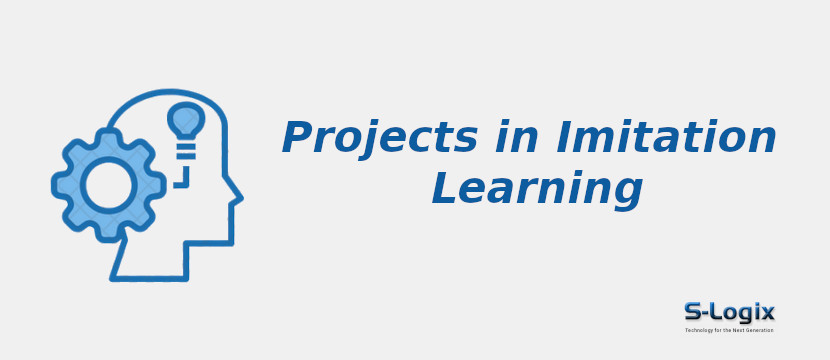Project Background:
Imitation Learning constitutes a significant area of research within machine learning and artificial intelligence, with a primary focus on enabling agents to learn by emulating the behavior of expert demonstrations. This project typically involves developing algorithms and frameworks that facilitate knowledge transfer from a demonstrator to an agent, allowing the agent to mimic and generalize the demonstrated behavior. This learning paradigm finds applications in various domains, including robotics, autonomous vehicles, and game-playing. The key motivation is to impart intelligent systems capable of acquiring complex tasks by leveraging the expertise embedded in human or expert demonstrations. Common approaches in this realm include Behavioral Cloning, where the agent learns a policy directly from observed actions, and Inverse Reinforcement Learning, which infers the underlying reward structure from expert behavior. The overarching goal is to create agents capable of autonomously learning from expert demonstrations, thereby accelerating the training process and enhancing the adaptability of intelligent systems in diverse real-world scenarios.
Problem Statement
- Imitation learning centers around overcoming key challenges associated with enabling agents to learn tasks by mimicking expert demonstrations.
-
One significant challenge is the distributional mismatch, where the training data, often in the form of expert demonstrations, may differ significantly from the distribution of states the agent encounters during execution. This disparity can lead to suboptimal or unsafe behavior when the learned policy is applied in real-world situations.
-
Another critical problem is the limited ability of imitation learning models to handle exploration in novel or unseen scenarios, as they rely solely on observed expert behavior without explicitly understanding the underlying decision-making process.
-
Addressing the robustness of imitation learning algorithms to uncertainties and disturbances is also a key concern, especially in dynamic environments where unforeseen events may deviate from the learned demonstrations.
-
Moreover, scaling imitation learning to high-dimensional or continuous action spaces and ensuring sample efficiency remain ongoing challenges.
Aim and Objectives
- Develop effective algorithms for Imitation Learning to enable agents to learn tasks by mimicking expert demonstrations.
-
Address distributional mismatches between expert demonstrations and real-world states.
-
Improve exploration strategies to handle novel or unseen scenarios.
Enhance robustness to uncertainties and disturbances in dynamic environments.
-
Ensure sample efficiency in learning from expert demonstrations.
-
Facilitate the generalization of learned behaviors across diverse real-world situations.
-
Explore techniques for transfer learning and adaptation in imitation learning.
-
Mitigate challenges associated with the limited availability of expert demonstrations.
Contributions to Imitation Learning
1. Developing novel exploration techniques allows imitation learning agents to handle novel or unseen scenarios more effectively, mitigating the challenges of limited exploration compared to traditional reinforcement learning approaches.
2.
Introduction of adversarial approaches to imitation learning, where the agent learns from positive expert demonstrations and adversarial examples, enhancing robustness and generalization in the face of uncertainties and disturbances.
3.
Exploration of transfer learning techniques by enabling agents to generalize knowledge from one task or domain to another, thereby improving the efficiency of imitation learning in scenarios with limited expert demonstrations.
4.
Innovations in combining imitation learning with reinforcement learning lead to more versatile and adaptive agents that can leverage expert demonstrations and trial-and-error learning for improved performance.
5.
Developing techniques to enhance the sample efficiency of imitation learning allows agents to learn from a limited number of expert demonstrations while still achieving high performance in the target task.
Deep Learning Algorithms for Imitation Learning
- Deep Neural Networks (DNNs)
-
Convolutional Neural Networks (CNNs)
-
Recurrent Neural Networks (RNNs)
-
Long Short-Term Memory Networks (LSTMs)
-
Trust Region Policy Optimization (TRPO)
-
Proximal Policy Optimization (PPO)
-
Actor-Critic Architectures
-
Deep Deterministic Policy Gradients (DDPG)
-
Twin Delayed DDPG (TD3)
Datasets for Imitation Learning
- OpenAI Gym
-
CARLA Autonomous Driving Simulator
-
TORCS (The Open Racing Car Simulator)
-
Aerial Informatics and Robotics Platform (AirSim)
-
MuJoCo (Multi-Joint dynamics with Contact)
-
Humanoid Robot Dataset (HARDI)
-
KIT Autonomous Driving Dataset
-
Hopper Terrain Dataset
-
NASA Tensegrity Robotics Toolkit
-
The Waymo Open Dataset
-
Stanford Drone Dataset
Performance Metrics
- Mean Squared Error (MSE)
-
Mean Absolute Error (MAE)
-
F1 Score
-
Precision
-
Recall
-
Area Under the Receiver Operating Characteristic (ROC) Curve (AUC-ROC)
-
Normalized Discounted Cumulative Gain (NDCG)
-
Entropy of Predicted Actions
-
Kullback-Leibler (KL) Divergence
-
Expert Imitation Performance
-
Diversity of Generated Trajectories
Software Tools and Technologies:
Operating System: Ubuntu 18.04 LTS 64bit / Windows 10
Development Tools: Anaconda3, Spyder 5.0, Jupyter Notebook
Language Version: Python 3.9
Python Libraries:
1. Python ML Libraries:
- Scikit-Learn
- Numpy
- Pandas
- Matplotlib
- Seaborn
- Docker
- MLflow
2. Deep Learning Frameworks:
- Keras
- TensorFlow
- PyTorch
